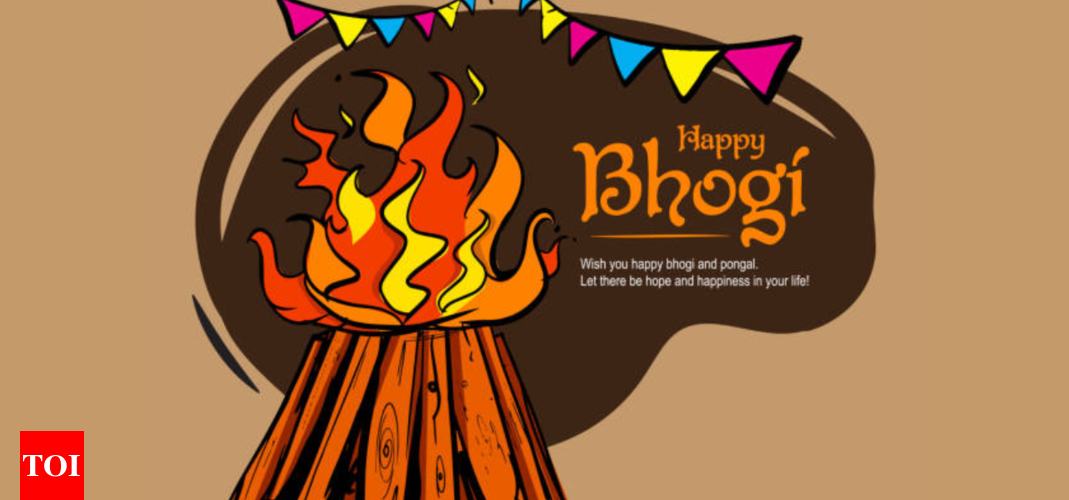Bhogi marks the beginning of the Pongal festival in South India and holds a special place in the hearts of millions. This festival, celebrated with enthusiasm and vigor, is observed on the first day of the four-day Pongal festival, which usually falls on January 13th each year. Bhogi is a celebration of renewal, both in terms of the environment and the personal spirit. The day signifies a fresh start by discarding the old and welcoming the new.
The Significance of Bhogi
Bhogi is primarily a festival associated with the agricultural cycle, representing the beginning of the harvest season. It marks the end of the cold winter days and the beginning of warmer weather, signaling the arrival of the Pongal festival, which celebrates the harvest of crops such as rice, sugarcane, and turmeric.
The day of Bhogi is symbolic of cleansing and transformation. It is an occasion to clear out the old, both materially and mentally, and make space for newness and positivity. Bhogi is deeply rooted in spiritual renewal, and it encourages people to let go of old habits, grudges, and negative energies, thus making way for growth, peace, and prosperity.
Celebrating Bhogi: Traditions and Rituals
One of the key customs of Bhogi is the Bhogi bonfire. People gather firewood, dried leaves, old furniture, and other waste items, creating large bonfires in open spaces. The bonfire symbolizes the burning away of the old, and the fire is believed to purify the environment and the soul. Communities come together around the bonfire, offer prayers, and celebrate with friends and family.
In rural areas, Bhogi is celebrated on a large scale, with people performing rituals that include lighting lamps, singing folk songs, and dancing to traditional beats. The bonfire serves as the focal point of celebration, and as the fire burns, people offer items like sugarcane, old clothes, and even agricultural produce like hay and grains into the flames.
In urban areas, though the bonfire may not be as large or widespread, the essence of Bhogi is still observed in the form of home rituals, cleaning, and family gatherings. Families clean their homes, buy new clothes, and engage in cooking traditional dishes to celebrate the day.
Bhogi Foods: A Taste of Tradition
The food prepared during Bhogi is an integral part of the celebration. Many traditional dishes are prepared that highlight the abundance of the harvest season. Some of the common foods include:
- Pongal: A dish made of rice and lentils, flavored with black pepper, cumin, ginger, and ghee.
- Sweets made of jaggery: Jaggery-based sweets such as tilgul (sesame and jaggery balls) are prepared to mark the festive spirit.
- Rice and lentils: The traditional sakkarai pongal, a sweet rice preparation, is one of the highlights of the festival.
- Savory items: Vadai and kachori are also popular dishes served during the Bhogi celebrations.
These traditional foods are not only a feast for the senses but also symbolize the harvest and the importance of agriculture.
Bhogi’s Cultural and Social Impact
Though Bhogi is traditionally celebrated in South India, particularly in Tamil Nadu, Andhra Pradesh, and Telangana, its influence has spread to other parts of India as well, especially in areas where agricultural communities reside. The festival is celebrated with much enthusiasm in Maharashtra, Karnataka, and Odisha as well, although the exact rituals and traditions may differ slightly.
Bhogi’s cultural impact extends beyond India as well. The South Indian diaspora in countries such as the United States, Canada, the United Kingdom, and Australia celebrates Bhogi, bringing the essence of this vibrant festival to communities around the world. The celebration fosters a sense of unity, as people come together to partake in the rituals and share the joy of the harvest.
Bhogi and the Spirit of Renewal
More than just a physical festival, Bhogi carries a spiritual message of renewal and transformation. It encourages individuals to discard negativity, past grievances, and anything that weighs them down, making space for new experiences and a positive outlook on life. As families gather for prayers, songs, and food, the focus is on healing, building relationships, and forging new beginnings.
Bhogi is also a time for reflecting on the past year and expressing gratitude for the blessings received. It reminds us of the cycle of nature—how life moves in phases, and renewal is always possible. The bonfire, in particular, is a powerful symbol of this cleansing and revitalization.
Bhogi 2025: A Time for New Beginnings
As we celebrate Bhogi 2025, it is a time for each of us to embrace the spirit of renewal. It’s an opportunity to start fresh, cleanse our surroundings and minds, and make room for new hopes and aspirations. Whether it’s cleaning your home, lighting a small lamp in your living room, or gathering around the bonfire with loved ones, Bhogi is a chance to reaffirm your commitment to personal growth, positivity, and gratitude.
Conclusion
Bhogi is a festival that transcends boundaries of geography and culture, with its message of renewal resonating across communities worldwide. The day invites us to discard the old and make way for the new, both in the material world and in our hearts. As the warmth of the bonfire spreads, may it light the way for you toward a brighter, more prosperous future.
Wishing everyone a joyful and blessed Bhogi celebration filled with new beginnings, happiness, and prosperity!







Add comment